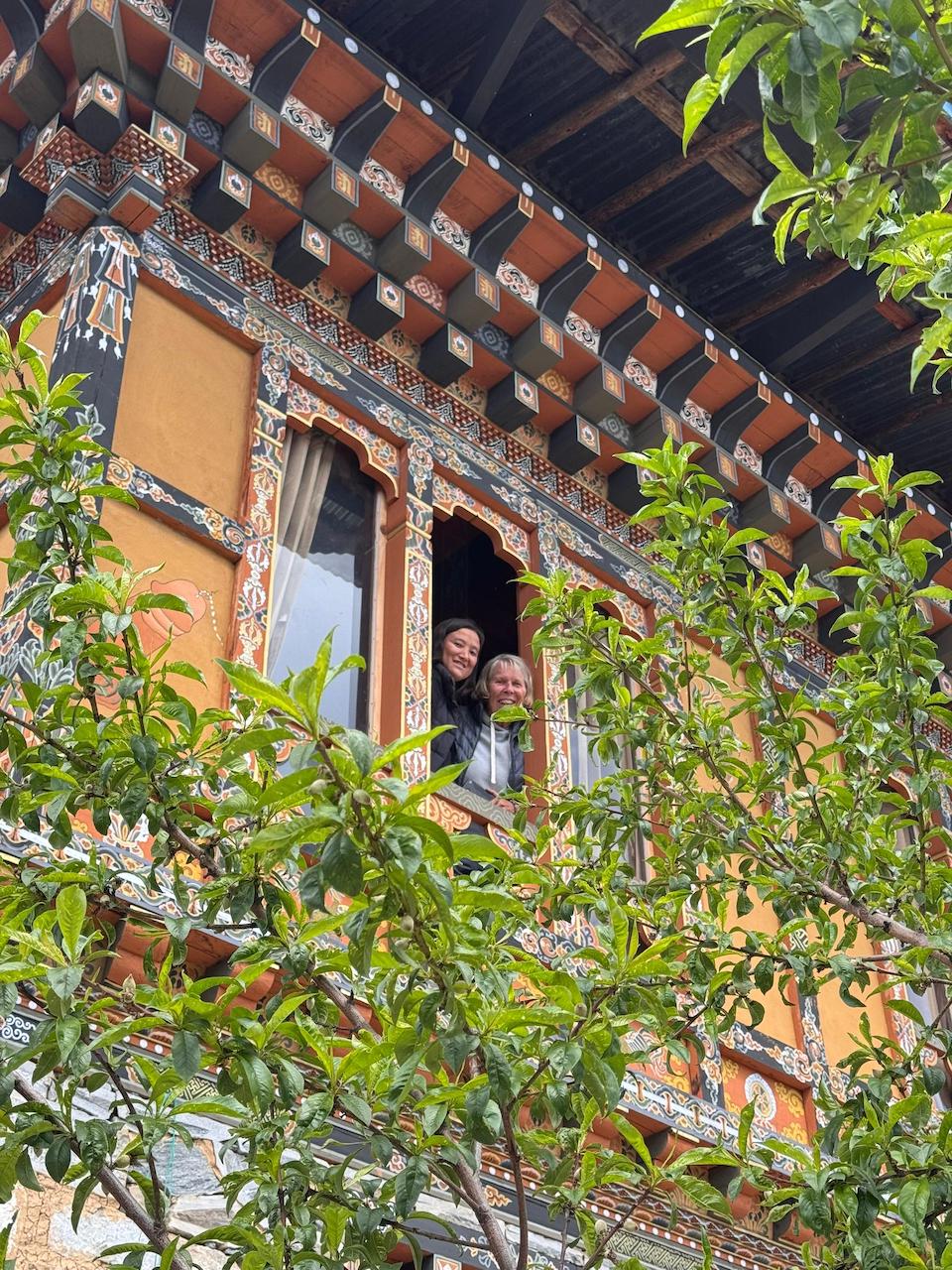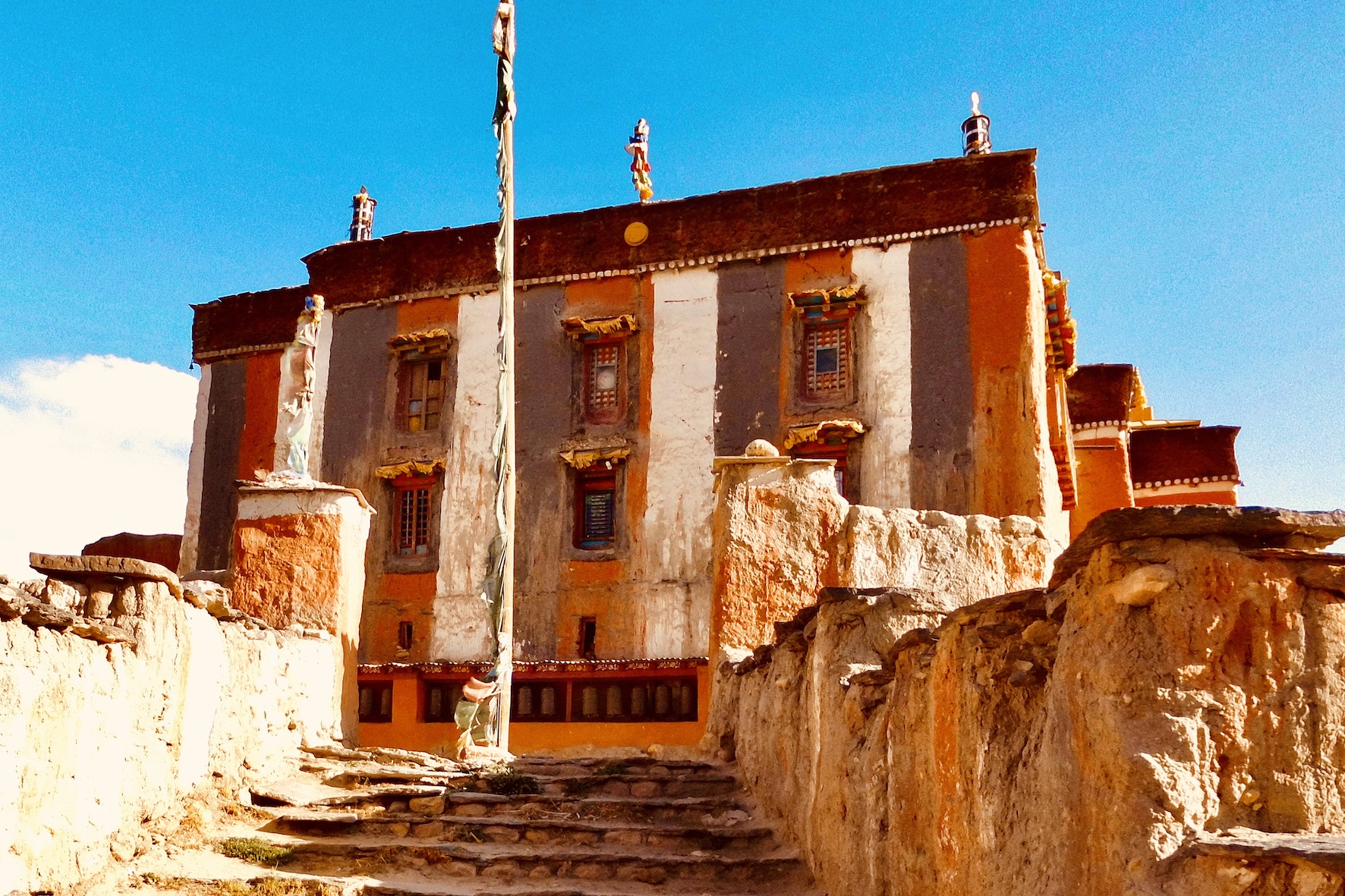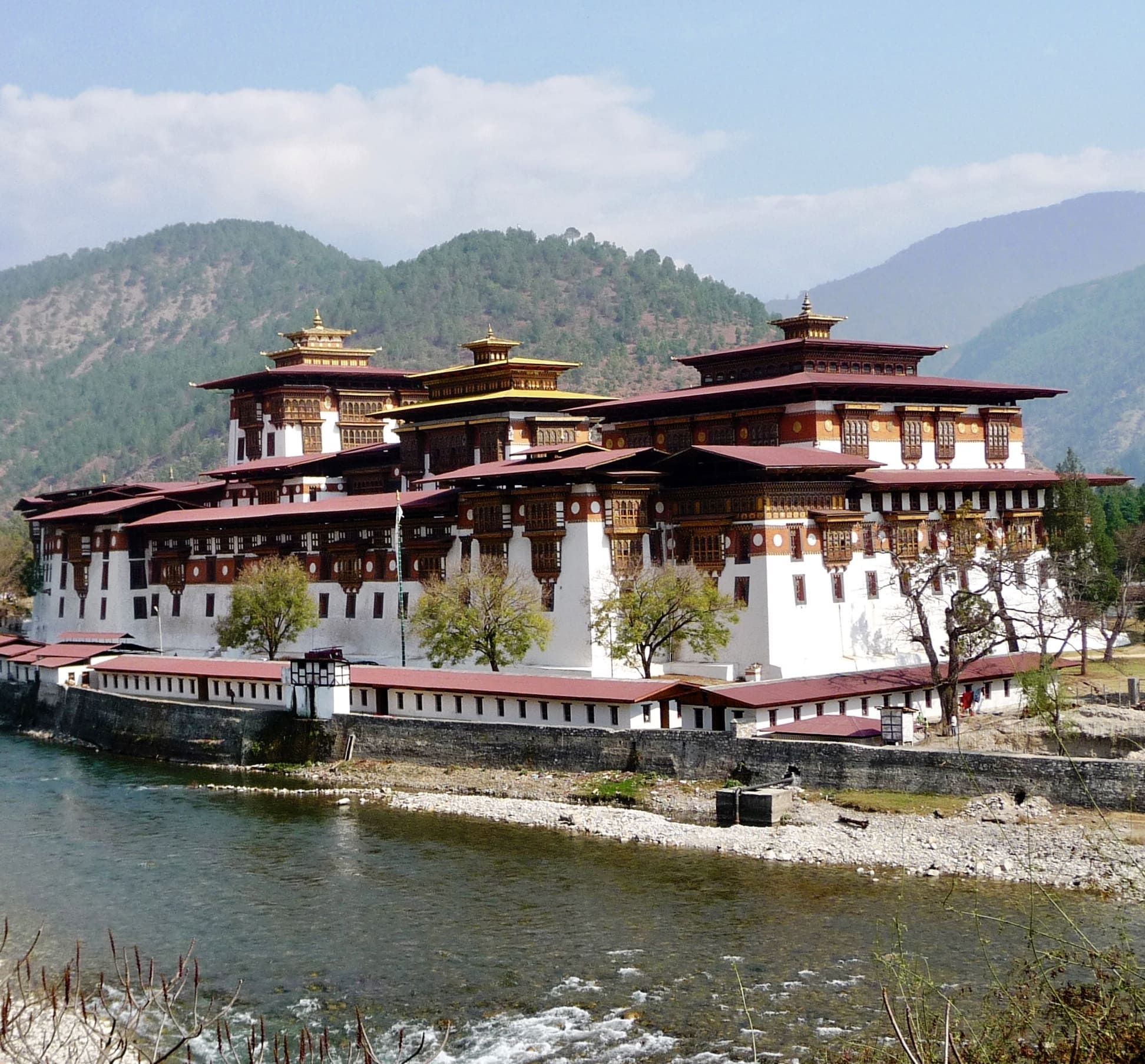You can contact us by e-mail or phone
from uk
01405 862917
outside uk
+44 1405 862917
01405 862917
+44 1405 862917
The Ultimate Bhutan Tour
All Meals Included
Duration
Accommodation
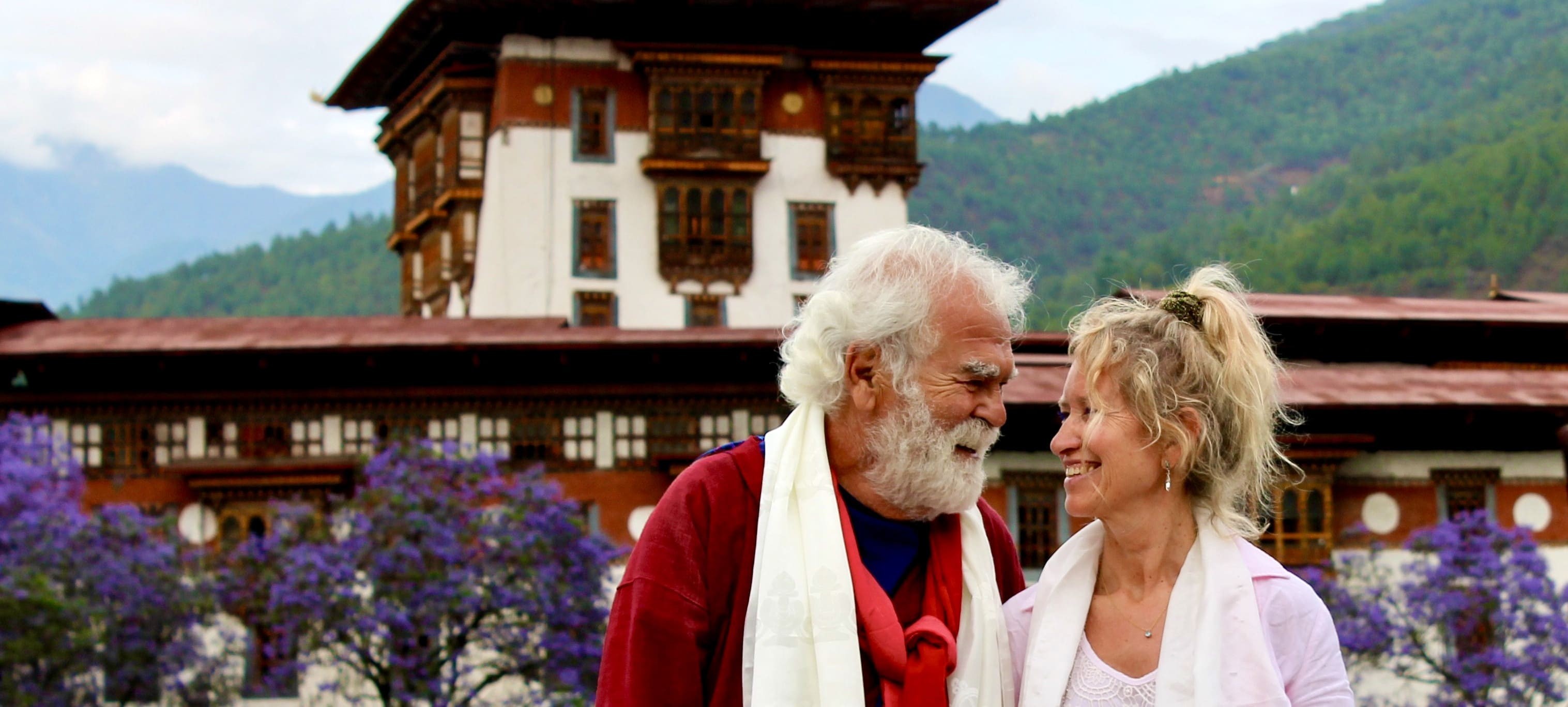
Trip Overview
This two-week Bhutan tour journeys overland from Paro as far east as the stunning Bumthang Valley and then as far west as Haa.
The tour incorporates all the major Bhutan highlights along the way. With impressive Dzongs, Monasteries, palaces, and other sites of religious significance, there’s also nature and rural Bhutan to discover on this in-depth Bhutan cultural tour. Returning to Paro by way of a quick internal flight, you then head west and into the delightful and once “off limits” Haa Valley before rounding out this fascinating Bhutan adventure with a walk to the iconic Taktsang Monastery—The Tiger's Nest. As with all our custom Bhutan tours, this itinerary can be customised.
To afford you as many authentic Bhutanese experiences we have carefully selected a variety of accommodations. You can find out more about each accommodation simply by clicking their respective links in the detailed itinerary. However as part of your custom visit to Bhutan you can of course choose to upgrade or downgrade. For more see our full range of Bhutan Hotels in all locations.
A highlight of a visit to any country is of course its traditional cuisine and you’ll see for yourself in the detailed itinerary you’ll have many opportunities to sample Bhutanese food, from restaurants to home cooking.
This two-week Bhutan tour journeys overland from Paro as far east as the stunning Bumthang Valley and then as far west as Haa.
-
The tour incorporates all the major Bhutan highlights along the way. With impressive Dzongs, Monasteries, palaces, and other sites of religious significance, there’s also nature and rural Bhutan to discover on this in-depth Bhutan cultural tour. Returning to Paro by way of a quick internal flight, you then head west and into the delightful and once “off limits” Haa Valley before rounding out this fascinating Bhutan adventure with a walk to the iconic Taktsang Monastery—The Tiger's Nest. As with all our custom Bhutan tours, this itinerary can be customised.
To afford you as many authentic Bhutanese experiences we have carefully selected a variety of accommodations. You can find out more about each accommodation simply by clicking their respective links in the detailed itinerary. However as part of your custom visit to Bhutan you can of course choose to upgrade or downgrade. For more see our full range of Bhutan Hotels in all locations.
A highlight of a visit to any country is of course its traditional cuisine and you’ll see for yourself in the detailed itinerary you’ll have many opportunities to sample Bhutanese food, from restaurants to home cooking.
Example Itinerary
-
-
Day 1Arrive Paro Transfer to Paro Hotel
-
Day 2Paro Sightseeing and to Thimphu
-
Day 3Thimphu & Cheri Gompa
-
Day 4Over the Dochu La to Punakha
-
Day 5Punakha Valley & Punakha Dzong
-
Day 6Over the Pele La to the Gangtey Valley
-
Day 7Gangtey and to Trongsa
-
Day 8To Bumthang
-
Day 9Explore Bumthang
-
Day 10Fly to Paro
-
Day 11Across the Chele La to Haa
-
Day 12Dzong Drakha & Taktsang Monastery - Option to add 2 day Bumdra Trek to Taktsang.
-
Day 13Depart Paro
-
-
DAY
1Arrive Paro Transfer to Paro Hotel
Arrive at Paro Airport. You’ll be met upon arrival and transferred by private vehicle to your hotel in the Paro Valley. Depending on your arrival time, you may be able to enjoy a short sightseeing tour of Paro. This evening you’ll have your first opportunity to sample Bhutanese food at the Nemjo Heritage Lodge, a converted old farm house enveloped by apple orchards and surrounding paddy fields where you’ll be staying.
Throughout this tour we have intentionally selected places to stay that are quite varied in their nature. You can find out more about each accommodation simply by clicking the respective links. However as part of your custom visit to Bhutan you can of course choose to upgrade or downgrade. For more see our full range of Bhutan Hotels in all locations. There’s everything from chic 5 star Boutique Hotels to wonderful home and farm stay experiences to choose from.Accommodation: Nemjo Heritage Lodge, Paro
Meals: Dinner
For detailed information, choices and advice for International flight options to Paro, Bhutan - please click hereDAY 1
Arrive Paro Transfer to Paro Hotel
Arrive at Paro Airport. You’ll be met upon arrival and transferred by private vehicle to your hotel in the Paro Valley. Depending on your arrival time, you may be able to enjoy a short sightseeing tour of Paro. This evening you’ll have your first opportunity to sample Bhutanese food at the Nemjo Heritage Lodge, a converted old farm house enveloped by apple orchards and surrounding paddy fields where you’ll be staying.
Throughout this tour we have intentionally selected places to stay that are quite varied in their nature. You can find out more about each accommodation simply by clicking the respective links. However as part of your custom visit to Bhutan you can of course choose to upgrade or downgrade. For more see our full range of Bhutan Hotels in all locations. There’s everything from chic 5 star Boutique Hotels to wonderful home and farm stay experiences to choose from.Accommodation: Nemjo Heritage Lodge, Paro
Meals: Dinner
For detailed information, choices and advice for International flight options to Paro, Bhutan - please click hereDAY
2Paro Sightseeing and to Thimphu
Before leaving the beautiful Paro Valley you’ll visit Paro Dzong and the National Museum. You’ll then be driven to Thimphu (approximately 2 hours by private vehicle), stopping along the way to visit the Tamchog Lhakhang Temple. From the road, it’s an easy walk of around 15 minutes to reach this 14th-century temple. It’s very atmospheric, and you may be forgiven for feeling like you’ve just travelled back in time to mediaeval Bhutan. For lunch you’ll be taken to the Kalden restaurant in Thimphu, which is a firm favourite for the local inhabitants of Thimphu. You can expect many traditional Bhutanese dishes to be on the menu, alongside some delicacies too, which may perhaps be a little “unusual” for visitors and for the more adventurous palettes. After lunch you’ll be driven up to the giant Buddha statue, from where there are great views over Bhutan’s rather small capital city. If you haven’t already noticed, the phallus symbol in Bhutan is quite significant and is often seen on homes throughout Bhutan and intended to drive away the evil eye and malicious gossip. So, dinner tonight is at a restaurant in Thimphu called Phallus. You could say that it’s a phallus themed wonderland! The wooden cutlery alone may surprise you. The menu however is a mix of both international and Bhutanese dishes.
Accommodation: Norkhil Boutique Hotel, Thimphu
Meals: Breakfast, Lunch, DinnerDAY 2
Paro Sightseeing and to Thimphu
Before leaving the beautiful Paro Valley you’ll visit Paro Dzong and the National Museum. You’ll then be driven to Thimphu (approximately 2 hours by private vehicle), stopping along the way to visit the Tamchog Lhakhang Temple. From the road, it’s an easy walk of around 15 minutes to reach this 14th-century temple. It’s very atmospheric, and you may be forgiven for feeling like you’ve just travelled back in time to mediaeval Bhutan. For lunch you’ll be taken to the Kalden restaurant in Thimphu, which is a firm favourite for the local inhabitants of Thimphu. You can expect many traditional Bhutanese dishes to be on the menu, alongside some delicacies too, which may perhaps be a little “unusual” for visitors and for the more adventurous palettes. After lunch you’ll be driven up to the giant Buddha statue, from where there are great views over Bhutan’s rather small capital city. If you haven’t already noticed, the phallus symbol in Bhutan is quite significant and is often seen on homes throughout Bhutan and intended to drive away the evil eye and malicious gossip. So, dinner tonight is at a restaurant in Thimphu called Phallus. You could say that it’s a phallus themed wonderland! The wooden cutlery alone may surprise you. The menu however is a mix of both international and Bhutanese dishes.
Accommodation: Norkhil Boutique Hotel, Thimphu
Meals: Breakfast, Lunch, DinnerDAY
3Thimphu & Cheri Gompa
The morning is spent exploring Thimphu with your guide. Firstly, you’ll pay a visit to the Tashichho Dzong and other places of interest, depending on your preferences. Possibilities include the School of Painting, craft workshops, the late King’s Memorial, and the Handicrafts Emporium. The latter is perhaps the best place in Bhutan to purchase Bhutanese handicrafts. One alternative would be to pay a visit to the Takin Reserve, a rather weird animal native to Bhutan if the hike to Cheri Gompa isn’t to your taste. If it is then you’ll be driven a short distance from Thimphu to Begana to enjoy a beautiful afternoon walk up to Cheri Gompa. This is such a scenic walk and therefore it’s an idyllic opportunity to enjoy a picnic lunch along the way amongst natural surroundings.The Gompa was built in the 17th Century, high up on a hill surrounded by forested hills. It takes around an hour to walk up to the Gompa and there are a few different detour possibilities for the return in order that you can walk through and experience the rural aspects of Bhutanese life. Walking time is around 3-4 hours. This evening you’ll be able to enjoy dinner in a different Bhutanese restaurant in Thimphu.
Accommodation:Norkhil Boutique Hotel, Thimphu
Meals: Breakfast, Lunch, DinnerDAY 3
Thimphu & Cheri Gompa
The morning is spent exploring Thimphu with your guide. Firstly, you’ll pay a visit to the Tashichho Dzong and other places of interest, depending on your preferences. Possibilities include the School of Painting, craft workshops, the late King’s Memorial, and the Handicrafts Emporium. The latter is perhaps the best place in Bhutan to purchase Bhutanese handicrafts. One alternative would be to pay a visit to the Takin Reserve, a rather weird animal native to Bhutan if the hike to Cheri Gompa isn’t to your taste. If it is then you’ll be driven a short distance from Thimphu to Begana to enjoy a beautiful afternoon walk up to Cheri Gompa. This is such a scenic walk and therefore it’s an idyllic opportunity to enjoy a picnic lunch along the way amongst natural surroundings.The Gompa was built in the 17th Century, high up on a hill surrounded by forested hills. It takes around an hour to walk up to the Gompa and there are a few different detour possibilities for the return in order that you can walk through and experience the rural aspects of Bhutanese life. Walking time is around 3-4 hours. This evening you’ll be able to enjoy dinner in a different Bhutanese restaurant in Thimphu.
Accommodation:Norkhil Boutique Hotel, Thimphu
Meals: Breakfast, Lunch, DinnerDAY
4Over the Dochu La to Punakha
To reach Punakha, the former capital of Bhutan, it takes around 3 hours by road in a private vehicle. But, it’s a spectacular journey over the Dochu La. The pass itself is at an altitude of 3140 m, and if it’s a clear day, you can look forward to spectacular views of the distant peaks of the Himalayas. Actually, this is a good place to stop and enjoy a leisurely lunch at a restaurant at the Dochu La itself and gaze at Bhutan’s highest peak, the unclimbed Gangkar Puensum (7550m). As you drop down into the Punakha Valley, you’ll notice how verdant everything is fast becoming. Stopping along the way, you’ll visit the “Divine Madman’s Temple”, otherwise known as Chimi Lhakhang. It is rather popular with Bhutanese women, and it won’t escape your notice that this 15th-century temple is decorated with phallus symbols. The women are coming here to pray for having children, although Drukpa Kunley, who built the 15th-century temple, did have some rather eccentric views about sex and is revered to this day by the Bhutanese people. Drukpa Kunley believed that sexual freedom lay at the centre of “The Truth” in his Tantric teachings. Welcome to Bhutan!
Accommodation: Dhensa Resort Hotel, Punakha
Meals: Breakfast, Lunch, DinnerDAY 4
Over the Dochu La to Punakha
To reach Punakha, the former capital of Bhutan, it takes around 3 hours by road in a private vehicle. But, it’s a spectacular journey over the Dochu La. The pass itself is at an altitude of 3140 m, and if it’s a clear day, you can look forward to spectacular views of the distant peaks of the Himalayas. Actually, this is a good place to stop and enjoy a leisurely lunch at a restaurant at the Dochu La itself and gaze at Bhutan’s highest peak, the unclimbed Gangkar Puensum (7550m). As you drop down into the Punakha Valley, you’ll notice how verdant everything is fast becoming. Stopping along the way, you’ll visit the “Divine Madman’s Temple”, otherwise known as Chimi Lhakhang. It is rather popular with Bhutanese women, and it won’t escape your notice that this 15th-century temple is decorated with phallus symbols. The women are coming here to pray for having children, although Drukpa Kunley, who built the 15th-century temple, did have some rather eccentric views about sex and is revered to this day by the Bhutanese people. Drukpa Kunley believed that sexual freedom lay at the centre of “The Truth” in his Tantric teachings. Welcome to Bhutan!
Accommodation: Dhensa Resort Hotel, Punakha
Meals: Breakfast, Lunch, DinnerDAY
5Punakha Valley & Punakha Dzong
You’re probably keen to visit Punakha Dzong, but first there’s a very atmospheric walk to enjoy. In less than half an hour's drive into the Punakha Valley, you’ll alight and set off on foot to Khamsum Yuelley Namgyal Chorten. The walking is innocent enough to begin with as you cross the Mo Chu River by way of a suspension bridge and stroll through paddy fields. But, as you’ve probably now realised, many religious monuments are located in the hills, and this one is no exception. So, you then have to climb up to the chorten. It should take less than an hour to reach it, though, even if it is a steep ascent. After exploring the chorten, you can walk back down the way you came up and return to your vehicle to be driven to Punakha Dzong. But if you prefer to carry on walking, you can exit via a different gate, and after an initial steep descent, the trail contours the hillside to descend more gradually through woodland to the village of Yambesa. Reaching the river, it’s then a nice and easy downstream stroll as you walk all the way to Punakha Dzong. After admiring the Dzong you’ll be driven back to your accommodation. Total walking time for this option is around 3-4 hours.
A good place for lunch today is Kajathrom. This is an al fresco restaurant that is set within beautiful park land and also enjoys a riverside location.Accommodation: Dhensa Resort Hotel, Punakha
Meals: Breakfast, Lunch, DinnerDAY 5
Punakha Valley & Punakha Dzong
You’re probably keen to visit Punakha Dzong, but first there’s a very atmospheric walk to enjoy. In less than half an hour's drive into the Punakha Valley, you’ll alight and set off on foot to Khamsum Yuelley Namgyal Chorten. The walking is innocent enough to begin with as you cross the Mo Chu River by way of a suspension bridge and stroll through paddy fields. But, as you’ve probably now realised, many religious monuments are located in the hills, and this one is no exception. So, you then have to climb up to the chorten. It should take less than an hour to reach it, though, even if it is a steep ascent. After exploring the chorten, you can walk back down the way you came up and return to your vehicle to be driven to Punakha Dzong. But if you prefer to carry on walking, you can exit via a different gate, and after an initial steep descent, the trail contours the hillside to descend more gradually through woodland to the village of Yambesa. Reaching the river, it’s then a nice and easy downstream stroll as you walk all the way to Punakha Dzong. After admiring the Dzong you’ll be driven back to your accommodation. Total walking time for this option is around 3-4 hours.
A good place for lunch today is Kajathrom. This is an al fresco restaurant that is set within beautiful park land and also enjoys a riverside location.Accommodation: Dhensa Resort Hotel, Punakha
Meals: Breakfast, Lunch, DinnerDAY
6Over the Pele La to the Gangtey Valley
Leaving Punkaha, you travel by private vehicle over the Pele La (3300m) and drop down by road to the Gangtey Valley. Gangtey is the name commonly given to the Phobjikha Valley, which lies in central Bhutan and is one of the kingdom's few glacial valleys. For several years, the cultivation of potatoes has brought a certain degree of prosperity to the local peasant farmers; however, the area is best known for the rare black-necked crane, which migrates from the Tibetan Plateau in order to avoid the extremely cold winters. You’ll visit the Black-necked Crane Visitor Centre, and if you’re here between late October and early spring, you may just see some of the revered Black-necked Cranes.
Rather than stay in a hotel this evening, we’ve selected a luxury tented camp where you can enjoy a most serene location that is more reflective of the natural beauty and rural nature of the Phobjikha Valley, although you can always change this to one of our other hand-picked Gangtey Hotels if you prefer.Accommodation: Gangtey Resort, Phobjikha Valley
Meals: Breakfast, Lunch, DinnerDAY 6
Over the Pele La to the Gangtey Valley
Leaving Punkaha, you travel by private vehicle over the Pele La (3300m) and drop down by road to the Gangtey Valley. Gangtey is the name commonly given to the Phobjikha Valley, which lies in central Bhutan and is one of the kingdom's few glacial valleys. For several years, the cultivation of potatoes has brought a certain degree of prosperity to the local peasant farmers; however, the area is best known for the rare black-necked crane, which migrates from the Tibetan Plateau in order to avoid the extremely cold winters. You’ll visit the Black-necked Crane Visitor Centre, and if you’re here between late October and early spring, you may just see some of the revered Black-necked Cranes.
Rather than stay in a hotel this evening, we’ve selected a luxury tented camp where you can enjoy a most serene location that is more reflective of the natural beauty and rural nature of the Phobjikha Valley, although you can always change this to one of our other hand-picked Gangtey Hotels if you prefer.Accommodation: Gangtey Resort, Phobjikha Valley
Meals: Breakfast, Lunch, DinnerDAY
7Gangtey and to Trongsa
Here in the unspoilt Gangtey valley system, there are several possibilities for you to explore rural valley life on foot. Your guide will help you choose one to soak up the wonderful scenic landscapes that best suit your wishes. After your chosen walk, you’ll travel by private vehicle via the Pele La to Trongsa. Here, you won’t be able to miss the Trongsa Dzong. It’s one of the most important and impressive of all the Dzongs in Bhutan. If you’re up for it, there’s a watch tower above the Dzong, from where there are really dramatic views from the roof top.
Accommodation: Yangkhil Resort Hotel Trongsa
Meals: Breakfast, Lunch, DinnerDAY 7
Gangtey and to Trongsa
Here in the unspoilt Gangtey valley system, there are several possibilities for you to explore rural valley life on foot. Your guide will help you choose one to soak up the wonderful scenic landscapes that best suit your wishes. After your chosen walk, you’ll travel by private vehicle via the Pele La to Trongsa. Here, you won’t be able to miss the Trongsa Dzong. It’s one of the most important and impressive of all the Dzongs in Bhutan. If you’re up for it, there’s a watch tower above the Dzong, from where there are really dramatic views from the roof top.
Accommodation: Yangkhil Resort Hotel Trongsa
Meals: Breakfast, Lunch, DinnerDAY
8To Bumthang
It’s around a 3–4 hour drive over the Yotong La (3425m) to reach the gorgeous Bumthang Valley. Just before Chhumey, though, you’ll stop off to visit the Domgkhar Palace and Lamey Gompa. It’s then just a short drive to the small town of Jakhar. Bumthang is the general name given to a complex of four valleys—Chhumey, Choekhor, Tang, and Ura—with altitudes varying from 2,600 to 4,000 metres. The beauty of the area is blessed with rich and fertile highlands covered mostly in pine, which are known for their buckwheat and apple production, sturdy stone houses, and plethora of monasteries. Being one of the coldest parts of the country, snow is a frequent sight in the winter.
Now for what we hope you’ll consider a real treat and a genuinely authentic cultural experience.
To reflect the rurality of Bumthang as well as afford you the opportunity to become more immersed and understanding of real life in Bhutan we’ve selected a very special Home Stay. A very traditional Bhutanese style home typical of the very rural Bumthang region. The Ngawang family pride themselves on providing warm hospitality to their guests as well as using their own home grown produce for truly authentic home cooked meals. Both the Tamzhing and Kenchogsum Monasteries are just a couple of minutes walk from here. A traditional Bhutan Hot Stone Bath can be prepared for you upon request for a small additional payment.Accommodation: Ngawang Family Home Stay, Bumthang
Meals: Breakfast, Lunch, DinnerDAY 8
To Bumthang
It’s around a 3–4 hour drive over the Yotong La (3425m) to reach the gorgeous Bumthang Valley. Just before Chhumey, though, you’ll stop off to visit the Domgkhar Palace and Lamey Gompa. It’s then just a short drive to the small town of Jakhar. Bumthang is the general name given to a complex of four valleys—Chhumey, Choekhor, Tang, and Ura—with altitudes varying from 2,600 to 4,000 metres. The beauty of the area is blessed with rich and fertile highlands covered mostly in pine, which are known for their buckwheat and apple production, sturdy stone houses, and plethora of monasteries. Being one of the coldest parts of the country, snow is a frequent sight in the winter.
Now for what we hope you’ll consider a real treat and a genuinely authentic cultural experience.
To reflect the rurality of Bumthang as well as afford you the opportunity to become more immersed and understanding of real life in Bhutan we’ve selected a very special Home Stay. A very traditional Bhutanese style home typical of the very rural Bumthang region. The Ngawang family pride themselves on providing warm hospitality to their guests as well as using their own home grown produce for truly authentic home cooked meals. Both the Tamzhing and Kenchogsum Monasteries are just a couple of minutes walk from here. A traditional Bhutan Hot Stone Bath can be prepared for you upon request for a small additional payment.Accommodation: Ngawang Family Home Stay, Bumthang
Meals: Breakfast, Lunch, DinnerDAY
9Explore Bumthang
Today, you can choose whether you’d prefer to explore Bumthang on foot or by private vehicle. Or a mix of both! Your guide will be willing and able to suggest possibilities as to how you’d like to spend today. One option for a quite straight-forward walking exploration is to walk to Jambay Lakhang and follow a track that brings you to the three large temples of Kurjey Lakhang. From here, you descend to the river, cross via a suspension bridge, and continue to walk gently down stream to the most important Nyingma Gompa in Bhutan, the 16th-century Tamshing Lakhang. After exploring here, your private vehicle will return you to Jakhar. The walking takes around 3–4 hours. If you’re interested in crafts, then you could visit the Yathra weaving centre as well as several of the Dzongs, monasteries, and the Wangdichholing Palace in the valley by private vehicle.
Accommodation: Ngawang Family Home Stay, Bumthang
Meals: Breakfast, Lunch, DinnerDAY 9
Explore Bumthang
Today, you can choose whether you’d prefer to explore Bumthang on foot or by private vehicle. Or a mix of both! Your guide will be willing and able to suggest possibilities as to how you’d like to spend today. One option for a quite straight-forward walking exploration is to walk to Jambay Lakhang and follow a track that brings you to the three large temples of Kurjey Lakhang. From here, you descend to the river, cross via a suspension bridge, and continue to walk gently down stream to the most important Nyingma Gompa in Bhutan, the 16th-century Tamshing Lakhang. After exploring here, your private vehicle will return you to Jakhar. The walking takes around 3–4 hours. If you’re interested in crafts, then you could visit the Yathra weaving centre as well as several of the Dzongs, monasteries, and the Wangdichholing Palace in the valley by private vehicle.
Accommodation: Ngawang Family Home Stay, Bumthang
Meals: Breakfast, Lunch, DinnerDAY
10Fly to Paro
It's just a short flight from Jakhar Airport back to Paro, although this flight is weather dependent so it's wise not to assume too much in terms of "what to do" this day. But, if you're back in Paro a reasonable time, then further exploration or a walk in this beautiful valley is possible.
This evening you’ll be taken to a family run restaurant for dinner in Paro renowned for its cooking.
NB: Jakhar - Paro flights are not daily, thus this itinerary needs to be planned around known flight schedules.
Accommodation: Naksel Boutique Hotel, Paro
Meals: Breakfast, Lunch, DinnerDAY 10
Fly to Paro
It's just a short flight from Jakhar Airport back to Paro, although this flight is weather dependent so it's wise not to assume too much in terms of "what to do" this day. But, if you're back in Paro a reasonable time, then further exploration or a walk in this beautiful valley is possible.
This evening you’ll be taken to a family run restaurant for dinner in Paro renowned for its cooking.
NB: Jakhar - Paro flights are not daily, thus this itinerary needs to be planned around known flight schedules.
Accommodation: Naksel Boutique Hotel, Paro
Meals: Breakfast, Lunch, DinnerDAY
11Across the Chele La to Haa
Time to now start heading west. Again by way of the Dochu La, which is probably the best location for a lunch stop on this journey too. But, you’re also going farther west than Paro and driving over the Chele La (3990m) and into the wonderful, rather “off the beaten track” Haa Valley. All in all, it’s around a 5-hour drive from Punakha, and once again, from both passes, you can pray for clear weather for those wonderful Himalayan views. Along the way you might want to stop and visit the Kila Gompa nunnery. You’ll have to walk, but it only takes around half an hour to reach. This rather isolated, peaceful Gompa with lush, forested slopes surrounding it is most certainly a place of peace and retreat. It’s home to around 30 or so nuns who live a life of seclusion and dedication to spirituality. Dating back as far as the 9th century, as a site of meditation, there are numerous secret caves as well as small buildings for secluded meditation. Descending into the “Once off limits” Haa Valley, you’ll notice the Rigsum—these are three hills, all cone-shaped, that are (believed to be) the physical manifestations of Manjushri, Chenrizig, and Chana Dorji. The Dalai Lama is considered to be Chenrizig in human form, the Buddha of compassion. Chana Dorji is the god that is believed to protect Bhutan. Once you’ve arrived at your atmospheric accommodation, your guide will take you on a gentle leg stretcher walk and to explore part of this beautiful valley. You may wish to consider spending an additional night here to give you another day to experience more of the Haa Valley.
Tonight you can enjoy staying at a genuine heritage lodge that is a traditional Bhutanese farmhouse that is around 150 years old, family-owned and has been restored and transformed into a charming authentic boutique lodge.
To make your visit to Haa even more special we’ll arrange for your dinner this evening to be at an authentic farmhouse where you can try a speciality that is equally authentic to the Haa Valley. Hoentay.
Hoentay is not dissimilar to the momo in so much as it's a stuffed dumpling, but in this instance made from buckwheat. The stuffing traditionally being turnip leaves, cheese and spices. Just like momo's these are best enjoyed with Ezay, which is a chilli based sauced with the addition of Szechuan pepper for even more zing.
Hoentay isn’t an every day food for the people of Haa. Rather it’s usually prepared by the locals for auspicious occasions like religious festivals. But, what better place to try a dish that belongs to the Haa Valley in that very and most bucolic valley itself and with the added atmosphere of a genuine farmhouse too. It’s about as real as it gets.Accommodation: Soednam Zingkha Heritage Lodge, Haa Valley
Meals: Breakfast, Lunch, DinnerDAY 11
Across the Chele La to Haa
Time to now start heading west. Again by way of the Dochu La, which is probably the best location for a lunch stop on this journey too. But, you’re also going farther west than Paro and driving over the Chele La (3990m) and into the wonderful, rather “off the beaten track” Haa Valley. All in all, it’s around a 5-hour drive from Punakha, and once again, from both passes, you can pray for clear weather for those wonderful Himalayan views. Along the way you might want to stop and visit the Kila Gompa nunnery. You’ll have to walk, but it only takes around half an hour to reach. This rather isolated, peaceful Gompa with lush, forested slopes surrounding it is most certainly a place of peace and retreat. It’s home to around 30 or so nuns who live a life of seclusion and dedication to spirituality. Dating back as far as the 9th century, as a site of meditation, there are numerous secret caves as well as small buildings for secluded meditation. Descending into the “Once off limits” Haa Valley, you’ll notice the Rigsum—these are three hills, all cone-shaped, that are (believed to be) the physical manifestations of Manjushri, Chenrizig, and Chana Dorji. The Dalai Lama is considered to be Chenrizig in human form, the Buddha of compassion. Chana Dorji is the god that is believed to protect Bhutan. Once you’ve arrived at your atmospheric accommodation, your guide will take you on a gentle leg stretcher walk and to explore part of this beautiful valley. You may wish to consider spending an additional night here to give you another day to experience more of the Haa Valley.
Tonight you can enjoy staying at a genuine heritage lodge that is a traditional Bhutanese farmhouse that is around 150 years old, family-owned and has been restored and transformed into a charming authentic boutique lodge.
To make your visit to Haa even more special we’ll arrange for your dinner this evening to be at an authentic farmhouse where you can try a speciality that is equally authentic to the Haa Valley. Hoentay.
Hoentay is not dissimilar to the momo in so much as it's a stuffed dumpling, but in this instance made from buckwheat. The stuffing traditionally being turnip leaves, cheese and spices. Just like momo's these are best enjoyed with Ezay, which is a chilli based sauced with the addition of Szechuan pepper for even more zing.
Hoentay isn’t an every day food for the people of Haa. Rather it’s usually prepared by the locals for auspicious occasions like religious festivals. But, what better place to try a dish that belongs to the Haa Valley in that very and most bucolic valley itself and with the added atmosphere of a genuine farmhouse too. It’s about as real as it gets.Accommodation: Soednam Zingkha Heritage Lodge, Haa Valley
Meals: Breakfast, Lunch, DinnerDAY
12Dzong Drakha & Taktsang Monastery - Option to add 2 day Bumdra Trek to Taktsang.
Unless you’ve decided to spend a further day exploring the delights of the Haa Valley you’ll now be heading back over the Chele La to Paro. You’ll first stop and visit the Dzong Drakha. This is a stunning temple built as if it were part of a vertical cliff face, although it is actually constructed on a ledge. It’s certainly very impressive and also affords some rather splendid views. After taking lunch at a restaurant in Paro, you’re probably itching to visit the Tiger's Nest. It’s actually a stiff 2-hour walk up through woodland and although not sustained parts are a rather steep climb. Thankfully, there’s a teahouse at one of the classic Taktsang Monastery view points where you can rest and refresh before a further 30 minutes of climbing brings you to Taktsang (3110m) itself. On the final climb, you pass what is probably the most famous view point, which looks directly across to the monastery. It’s usually possible to enter the monastery, but if there’s something going on at the monastery (religious or VIP visit), then it may not be possible. Heading steeply down, a descent of around 100m leads into a gorge before climbing back up to the main monastery gate, from which it’s down to the valley floor and your ride “home”. Walking time is around 4–5 hours, with around 750m of ascent and descent.
Alternatively this can also be extended to become a 2 day trek known as the Bumdra Trek. This hike begins at Sang Choekor Monastery (2800m) near Paro followed by a steep climb of around 2hrs to a ridge and then to Chhoe Chhoe Tse Lhakhang and then up through pine forests to Bumdra Monastery (3800m) where you spend the night at fixed camp. Walking time is around 4hrs total with 1000m ascent. There’s also the option to climb Bumdra Peak (2-3hrs return and approx 4000m) for greater Himalayan views.
The following day you would trek from Bumdra to Taktsang Monastery , which takes around 3hrs and then descend on the main Taktsang trail and then transfer to your accommodation for the night and where you’ll also have dinner.
Tonight’s selected accommodation for your last evening in Bhutan is a rather atmospheric one under canvas in a deluxe tent, but still with the feel of a modern hotel bedroom. This is glamping Bhutanese style. However you can readily change this accommodation and upgrade/downgrade from our selection of Paro Hotels if you prefer.Accommodation: The Tiger's Nest Camp, Paro
Meals: Breakfast, Lunch, DinnerDAY 12
Dzong Drakha & Taktsang Monastery - Option to add 2 day Bumdra Trek to Taktsang.
Unless you’ve decided to spend a further day exploring the delights of the Haa Valley you’ll now be heading back over the Chele La to Paro. You’ll first stop and visit the Dzong Drakha. This is a stunning temple built as if it were part of a vertical cliff face, although it is actually constructed on a ledge. It’s certainly very impressive and also affords some rather splendid views. After taking lunch at a restaurant in Paro, you’re probably itching to visit the Tiger's Nest. It’s actually a stiff 2-hour walk up through woodland and although not sustained parts are a rather steep climb. Thankfully, there’s a teahouse at one of the classic Taktsang Monastery view points where you can rest and refresh before a further 30 minutes of climbing brings you to Taktsang (3110m) itself. On the final climb, you pass what is probably the most famous view point, which looks directly across to the monastery. It’s usually possible to enter the monastery, but if there’s something going on at the monastery (religious or VIP visit), then it may not be possible. Heading steeply down, a descent of around 100m leads into a gorge before climbing back up to the main monastery gate, from which it’s down to the valley floor and your ride “home”. Walking time is around 4–5 hours, with around 750m of ascent and descent.
Alternatively this can also be extended to become a 2 day trek known as the Bumdra Trek. This hike begins at Sang Choekor Monastery (2800m) near Paro followed by a steep climb of around 2hrs to a ridge and then to Chhoe Chhoe Tse Lhakhang and then up through pine forests to Bumdra Monastery (3800m) where you spend the night at fixed camp. Walking time is around 4hrs total with 1000m ascent. There’s also the option to climb Bumdra Peak (2-3hrs return and approx 4000m) for greater Himalayan views.
The following day you would trek from Bumdra to Taktsang Monastery , which takes around 3hrs and then descend on the main Taktsang trail and then transfer to your accommodation for the night and where you’ll also have dinner.
Tonight’s selected accommodation for your last evening in Bhutan is a rather atmospheric one under canvas in a deluxe tent, but still with the feel of a modern hotel bedroom. This is glamping Bhutanese style. However you can readily change this accommodation and upgrade/downgrade from our selection of Paro Hotels if you prefer.Accommodation: The Tiger's Nest Camp, Paro
Meals: Breakfast, Lunch, DinnerDAY
13Depart Paro
A private vehicle transfer to Paro Airport for your departing flight.
Meals: Breakfast
Of course, there's no reason to depart today; your Bhutan holiday can be readily tailor madeDAY 13
Depart Paro
A private vehicle transfer to Paro Airport for your departing flight.
Meals: Breakfast
Of course, there's no reason to depart today; your Bhutan holiday can be readily tailor madeIMPORTANT
This is an EXAMPLE ITINERARY and can be customised for you accordingly.
Please consider whether you want your customisable, private trip itinerary to also include CONTINGENCY.
See our ABOUT CONTINGENCY Information
Please CONTACT US to discuss CONTINGENCY and ADDITIONAL ACCLIMATISATION, as well as other CUSTOMISATION POSSIBILITES for your PRIVATE CUSTOM TREK
Price Guide
- $ US 4790
IMPORTANT INFO ABOUT OUR PRICE GUIDES
Prices include the compulsory Bhutan Sustainable Development Fee.
For more, see: BHUTAN TOURIST CHARGES EXPLAINED
What's included
The price shown is for guideline purposes. The price is inclusive of the DAILY SUSTAINABLE DEVELOPMENT FEE, all accommodations described in the detailed itinerary (twin share) and An English-speaking Bhutanese guide.
Private airport transfers
All road transport by private vehicles
Jakhar to Paro flight
All meals as indicated in the detailed itinerary
Bhutan Visa and Tourist Taxes
Bhutan airport tax
Sightseeing, where specified
Don't Forget
We can customise
all our trips.
extend. shorten. upgrade
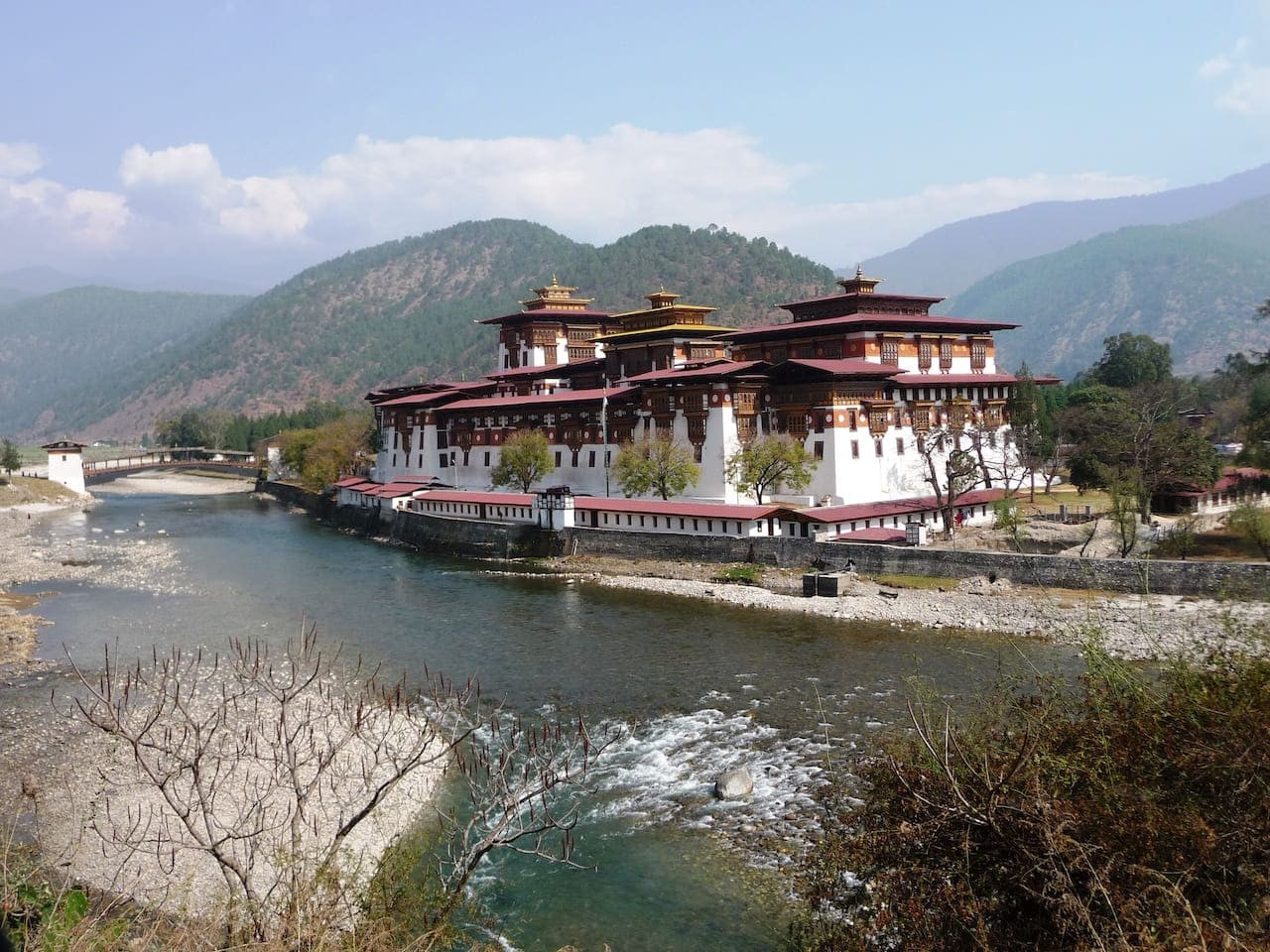
See an image gallery of sights, people, Dzongs, festivals and more of the wonders of beautiful Bhutan
More Hand-Crafted to Perfection
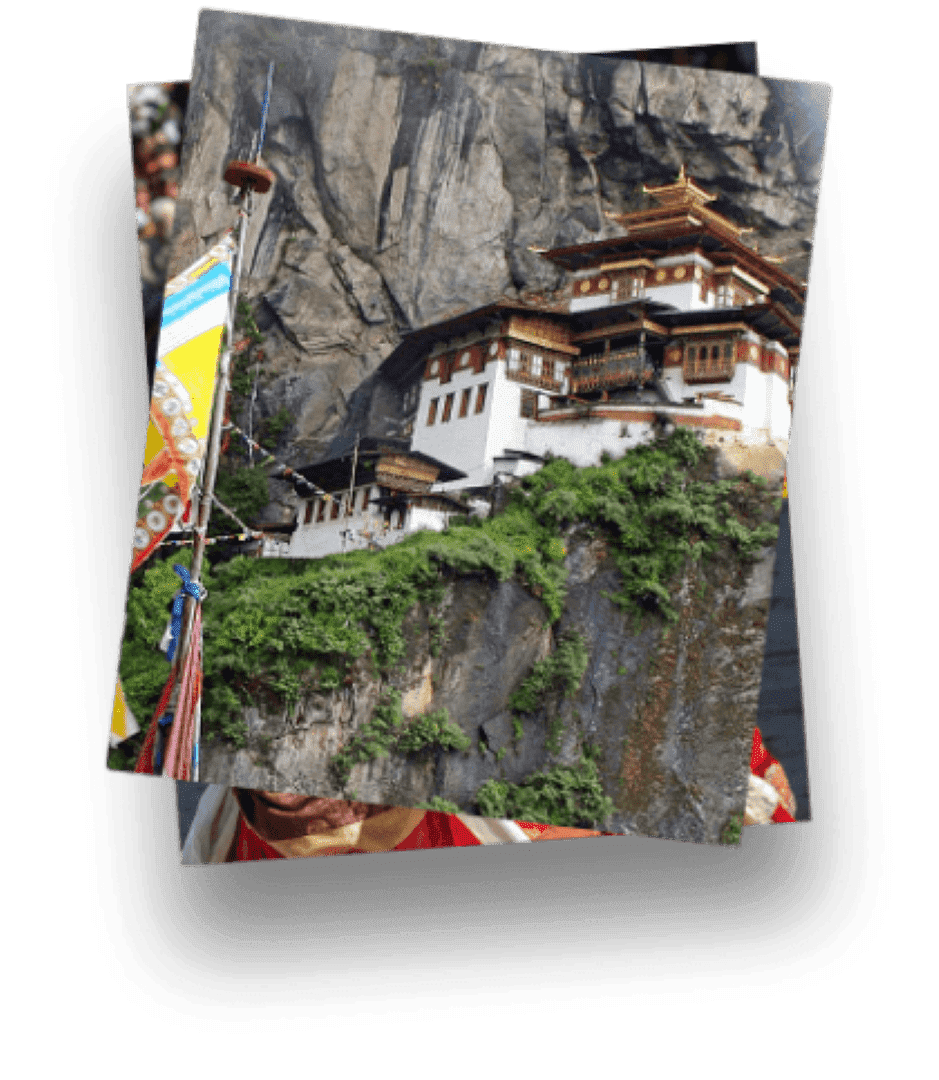
Read our Bhutan Travel Guide

All rights reserved. Snow Cat Travel is a Registered Trade Mark UK 00003289264

